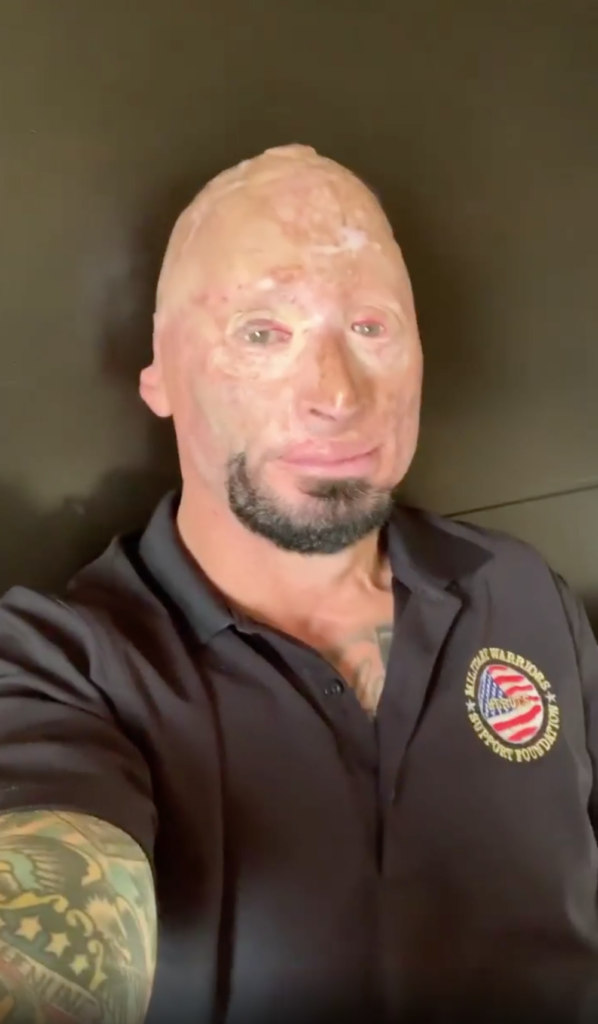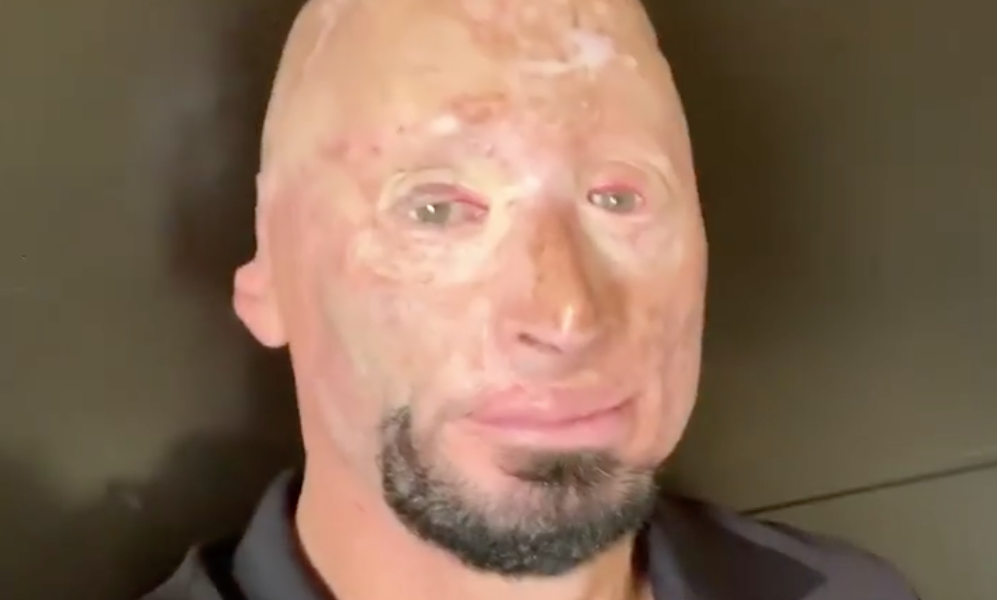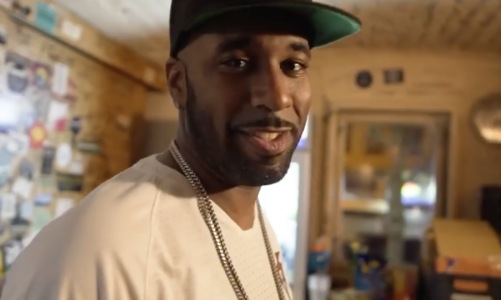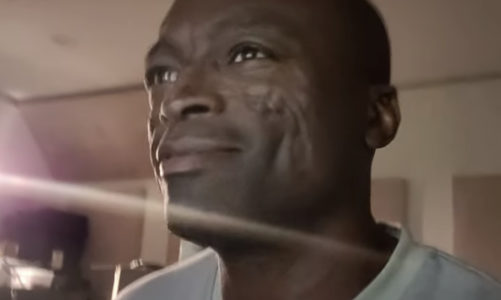
Bobby Henline is a standup comedian and retired military Staff Sergeant who served four tours in Iraq. More than ten years after enlisting to fight in Desert Storm at 17, he was moved to re-enlist immediately following the September 11th terrorist attacks. During his fourth tour in 2007, Bobby’s Humvee was struck by an IED, leaving him burned across almost 40% of his body and killing the other service members inside. He was flown back to the U.S. in a coma and was not expected to survive. Two weeks later, he emerged from the coma. Two years after that, he first took the stage as a stand-up comedian. Known as “The Well Done Comedian,” Bobby’s comedy attracted international attention and has since been the subject of documentaries such as Comedy Warriors co-starring Bob Saget and Zach Galifiankis among others, Larry Charles’ Dangerous World of Comedy, and Time Magazine’s Healing Bobby. Bobby engages communities through motivational speaking with Bravo748 Military and Combat Speakers Bureau, of which he is a co-founder. When not speaking or performing, he devotes himself to his non-profit organization, The Bobby Henline Foundation: Forging Forward.
*A version of this interview has been published in the Brown Political Review.
Amelia Spalter: What was the timeline of your recovery from “flown out of Iraq in a coma” to “flying back to Iraq to tell jokes about it?”
Bobby Henline: I spent six months in the hospital, including a month in ICU. I couldn’t see anything for 14 months. Once they got a skin graft to work on my head, I was able to get one eyelid working. It was wide open again for a while, but then I got a special contact lens that helped me get it to close all the way. My other eyelid will never shut, because the muscles are gone.
About the time when I got my head closed up, 18 months after I was injured, I could drive myself to my appointments and began getting my independence back. That’s when it started to hit me, “Wow. I’m still here.” Before that, I had just prayed every night to die. I felt like a burden. I didn’t know why I’d survived. 18 months later was when I started to see, “Wait, I get to watch my children grow up and see my grandchildren someday.” And here we are already. I have three granddaughters.
It took 18 months for a sense of purpose. It was three years before I really got comfortable with the way I looked and accepted my face. Shoot, I see old pictures of me, and I’m better looking now. That helps with that confidence like, “Oh my God. At least I don’t look like that guy anymore.” Comedy was in between those two milestones, it was two years after. I had just had my hand amputated when I got into comedy. They tried to get my hand to work for those first two years, so it took three to start really grooving back into life.
AS: How do you handle audiences who are hesitant to laugh at a wounded veteran?
BH: The first time I did stand-up, no one laughed at all. I do get why people are scared to laugh. Especially at places like a conference or fundraiser where they didn’t necessarily come expecting to see a comic. I go in and make fun of myself and other wounded vets and they’re uncomfortable.
With those types of events, I’ve learned to start with the story of how I got into comedy. It makes it easier for them, going, “Okay he wants us to laugh at him.” But in a comedy club when I have someone that can’t laugh at it, it’s kind of weird. There was a lady in Vegas one time, sitting right in the front row, who goes, “Oh my god I can’t laugh at that.” She felt so bad, she had to turn to people next to her, who she didn’t even know, and explain, “I can’t laugh at that, I just can’t.”
But I could totally hear her. So I’m like, “Really ma’am? I went through all this, now I’ve got to hold your hand?” I get a lot of people who come up afterward going, “Oh my god, I felt bad for laughing, but that shit was funny.” I’m like, “Good, thank you for laughing. We’d have all felt worse if no one laughed.”
AS: What about off stage? You’ve spoken in the past about getting blunt commentary from children regarding your appearance. How should the adults accompanying them respond in such situations?
BH: If there are kids involved, and especially if the kids are pointing or asking, then I definitely think you should approach the person. Most likely we’re going to want to explain why we look the way we do. It helps us, and it helps other people. Because that kid may eventually be in school with someone who’s different, and he’ll include, or even protect that person, because he understands it now. He wasn’t just told it’s something to ignore and not talk about or not even look at. Most bullying comes from lack of understanding or feeling uncomfortable. If the setting is appropriate, definitely ask the person directly.
Kids will point at me and say, “Look Mommy, a monster.” But you can’t blame the kid. This is what a monster looks like. This is how they are depicted in the media, as disfigured. The hero is never burned or disfigured, only bad guys like Freddy Kruger are burned. So, when your child is saying something along those lines, it isn’t the time to run away from me. It’s actually the perfect time to educate that child, because otherwise they’re just going to grow up even more scared around us creatures.
AS: Besides yourself, are there any positive representatives of burn survivors in the mainstream media?
BH: Not really, and it’s what we need. We need to show that people can live with disfigurements and still be just as happy as anyone else. Whether they’re born that way or they lived through something that made them that way, it doesn’t really change you so much as make you more of who you already are. If you were an asshole before you were injured, you’re probably a much bigger asshole afterwards. I was always kind of a clown before, but I became a professional comedian afterwards. For better or worse, adversity doesn’t distort who you are, it magnifies it.
AS: Because you’re one of the only public faces, do other burn survivors get mistaken for you?
BH: I get asked if I’m J.R. Martinez. He’s a burned veteran who was on Dancing with the Stars. We’re so different, he’s 100 pounds lighter than me, he’s Salvadorian, he’s got both hands, and he can dance. But the mix-up happens a lot because most people don’t see burn survivors just out living their lives. So, here he was on TV, then you see me going through an airport, “Oh! That’s got to be the dancing guy! He’s the only one we know of that’s happy and burned.” I don’t know how they never stop first and ask themselves, “He had two hands on the show, what happened?”
I also get asked if I’m Jason Schechterle, a burned cop who works in Arizona. But I can’t blame anyone who asks me that, because I finally saw a picture of Jason. It was on the cover of a magazine, and I actually went “Holy shit! I didn’t know I was being featured in this magazine.”
AS: What was the process of rediscovering your physicality like? Once you had regained basic functions, did your other skills adapt naturally, or was each new activity a challenge?
BH: It was hard. Hard, hard. You start out thinking you can no longer do the things you love to do. But I just had to. Not relearning it would have been harder than relearning it was. I like to go camping, I like to go hiking, and fishing, and doing all that stuff. I used to race BMX. I was always that kind of crazy adrenaline junkie. I’ve been back to Iraq three times since the injury to do comedy for the troops… Yah, I’m a slow learner.
The physical part of it is easier to figure out than the mental part of it. For example, the first time I went fishing again, it was like, ok throw the pole here, turn around backwards, there we go. Figuring out the mechanics of what I could do was the easy part. Realizing there were things I couldn’t do anymore, like bait the hook, was the hard part. I said to myself, “Alright, part of losing a hand is that I have to be okay with letting people help me sometimes.”
But then I see this professional bass fisherman that doesn’t have any arms. He ties knots in the fishing line his mouth! So I had to look at it as, “I can’t do this the way I used to do it. That doesn’t mean I can’t do it.” With all these things, I found a different way to do it. But sometimes that did include asking for help, which was one of the hardest parts.
Like with skydiving. I jumped out of planes in the Army, so I knew there were a lot of different ways it could be done. So I went tandem skydiving with a big group of amputees and found a way to make it work.
AS: Of course, after finally accomplishing years of agonizing recovery from a near death experience, who wouldn’t rush to jump out of a plane? How long was it after your injury until it occurred to you to try extreme sports again?
BH: It wasn’t a priority at first. At the hospital, they scare you: “You can never go in the sun again!” “You’ve got to be careful all the time!” “Don’t do this, don’t do that!” I felt useless. I didn’t think I’d ever be able to do much of anything. Before I was thinking about skydiving, it was just figuring out how to walk again.
You’re slowly getting that energy back, and then you’re crashing from the drugs you’ve been prescribed. I just thought that was the way I felt naturally. I was trying to come to terms with it like, “Okay, I’m injured, this is how I’m going to feel. This is what burn survivors feel like for the rest of their life… AAAH!!” Waking up in the morning, it’d take me 15-20 minutes just to put my socks on. I needed Percocet and Methadone to get energy and I attributed that feeling to being burned. Then I finally realized, “Hey, maybe I’m just a drug addict.”
I made myself get off all the drugs, and once I was able to get off everything, I got that energy back. Being able to train again helped me mentally, too. It gave me more confidence, like it motivated me to finally get my missing front teeth fixed. I used to tell a joke about it, “After the explosion, I got Bluetooth… One blew this way, one blew that way.” I wasn’t planning to fix them. Because at first, I was hellbent on, “I don’t want any cosmetic surgeries, I just want to be functional.” But I became motivated to get some dentures put in just to fill the space, and wow, a mouthful of teeth made a big difference. All of a sudden you don’t look as injured. As everything progressed with the surgeries, the teeth, exercising, and things like that, I got my confidence back in life enough to advance from “Can I walk?” to “Can I skydive?”
AS: You’ve spoken about faith a great deal, on and off stage. What role did it play in your recovery?
BH: As they say, there’s never an atheist in a foxhole. I wasn’t religious before. I’m not now either, I have strong beliefs, but I don’t practice a specific religion. In 2003, in Iraq, my buddy was always trying to get me to read these books about religion, and I always declined. Fast forward to 2008, when I was released from the hospital. During my hospitalization, there was this church that pretty much adopted me. They’d come to the hospital, bring my favorite peanut butter cookies, helped my family get housing and move to be closer to me while I was hospitalized. Not one time, not once, did they say anything about their church. Nothing about how I needed to convert to their church, nothing to try to pull me in. All they’d say was, “What do you need?”
Of course, once I was out of the hospital, I wanted to go say thank you. So I go there, and I met the preacher, and afterwards I called my buddy up and said, “Hey I went to the church that’s been taking care of me and it was great. Have you ever heard of this guy named Max Lucado?” And he said, “Yah, idiot. He wrote the books I tried to get you to read.” It amazes me how many signs there have been like that.
AS: So you weren’t religious before the accident. At what point did you start to take on these new beliefs?
BH: I didn’t just wake up in the hospital saying “I’m still alive? I should believe in God now.” I remember this period, which I think had to be during the two weeks I was in a coma. I was on a giant iceberg. Obviously, I wasn’t really on an iceberg, but that’s what it felt like. Looking up into a black sky, with little stars everywhere, all alone. But very calm and completely comfortable, just floating there. Then voices started to tell me that I’d be okay and my family was waiting for me. That’s when I woke up. Looking back, I realized I was being judged by God.
Then the doctors started to tell me there was no medical explanation as to how I was still alive. So I had to ask myself, “I know I survived, but why?” That’s when I got to praying every night, like, “God, I’m useless. I don’t know why you’ve still got me here. Is this torture because I didn’t believe all those years?” I don’t think God did this to me. I don’t believe God hurts people. I think He just took advantage of my situation. He knew that I could do what I am doing today. Of course, I didn’t see it, but I had made a choice even before this. I come from a family of alcoholics and drug addicts. I could have easily gone down the wrong path as early as 17, but the Army saved me.
Then when I was injured, I could have reverted back to that life I’d avoided. But I knew I was here for a reason. I just didn’t know what that reason was. So I looked for it, slowly, even though I was getting impatient. I had to physically heal first. Then, once the comedy started, I was able to heal in a different way. I learned that I could help others just by speaking openly about what happened to me. That by sharing my story, my personality, and just engaging with them, I could help get others through whatever they were struggling with.
AS: How did you go from the occasional open mic to deciding you wanted to pursue comedy professionally?
BH: I began to see it was therapeutic for me to get it out. And that the more I performed, the more people will see me, which is important because you never know who’s going to be in the audience tonight. Even if it’s just an open mic, somebody watching might have really needed to laugh that night, to hear some particular detail of my story, or even just to see me. I started to hear about things like that more and more, so I just kept doing it. Three times a week, all open mics. Then next thing you know, I was asked to host a show at the club. And I was like “What? Someone’s actually going to pay me money to do a show?” But even now, I’m not in it for the money. You don’t get into comedy for the money, you get into it for the counseling. You’re spewing your personal shit out to a bunch of drunk people and they’re laughing, but by doing so they’re saying, “We get it. You’re not alone.”
AS: You managed to gloss over starring in a documentary with some of the nation’s top stand-ups. How did that come about?
BH: Wounded Warrior Project sent an email blast out to any veterans who might be interested in comedy, and it essentially said, “We’ve got some guys who want to teach you about stand-up.” I was already writing and performing at that point, but I didn’t really know what I was doing, I’d just been having fun with it. So I thought maybe this would help me advance to the next level. “Some guys” turned out to be Bob Saget, Zach Galifianakis, Lewis Black, and B. J. Novak, to name a few. Not long afterwards, Time Magazine came to me.
AS: That’s when they approached you to pitch the Healing Bobby documentary?
BH: Originally, all they’d wanted me to do was be in some photos. Their photographer took some and sent them back to Time, and they said, “We want to do more with this guy.” After Time came and shot everything, I was approached by PBS for a different documentary project. We made plans to start shooting that, then I left to do a speaking engagement for veterans out of town. While I was away, PBS called and said, “Time Magazine just released your project and the New York Times published a press release on it—” I had to stop them, I was like “Wait, the New York Times wrote about me?” And they weren’t as excited as I was, they were like, “Just tell us, is the Time documentary the same sort of thing you’re doing for us here at PBS?” And I assured them it wasn’t, and I rushed off the phone to look up the article. It said, “Time Magazine is putting out a series of documentary films. The first two are about Dr. Martin Luther King Jr… and Bobby Henline.”
I did not know how to react. I literally got up, locked my hotel room door, grabbed a bottle of whiskey, and just thought “Is this a mistake? Didn’t they mean to throw me on the back page somewhere?” I’m getting goosebumps even thinking back to that moment. That my name was featured in the New York Times in the same place as Martin Luther King’s. But that’s where comedy and having faith in my belief system has gotten me. I’ve been blessed. I tell people all the time, “God gave me the courage and strength to do this.” And to anybody who doesn’t believe me, I get it. I was there. Even if you don’t believe, God still loves you, or I wouldn’t be here. Right?
AS: PTSD is often misrepresented in TV, movies, and even in news media. How has it actually manifested in your day-to-day life?
BH: I think PTSD is on-going. You’re not going to get rid of it, so I found going towards things that make me uncomfortable, actually helps. In the beginning, it was hard. Like the grocery store. I moved shortly after coming home, so I didn’t know my way around this store, and I like routine. Navigating the store became so difficult that halfway through shopping, I’d just set my basket down with all the groceries still inside it and have to walk out. The anxiety got to me. Even something just being out of place on the shelf could do it. Long story short, through interacting with all the doctors and stuff, I learned on top of the PTSD, I’ve also always had OCD.
When I’m experiencing the two together, the anxiety kicks in, and I can’t even breathe. I just have to get out of there. But I couldn’t just never go shopping again, so I started to take on the challenge little by little. I’d go back to the store, buy bread, check out with my bread, and go home. Next time, maybe I’d buy bread and milk. The time after that I got three or four items. I slowly learned the store until I was comfortable enough to handle it. Like I said, when you get injured, you become more of who you are. So going through this made my OCD more prominent. PTSD and OCD are both things that cause anxiety, and anxiety creates anger. It can be frustrating for my kids and my ex-wife, because I’d get mad for seemingly no reason.
AS: So you had to cautiously ease back into the grocery store… but returning to Iraq was fine?
BH: Fine? I was excited! If you told me right now, “There’s a plane waiting outside, we’re taking you back overseas.” I’d be like, “Let’s go.” The things that give me anxiety are here at home. The problem that veterans have with PTSD is they can’t turn off what it’s like to be living over there. When you come home, you need to shut down those instincts. I can turn them off pretty easily when I’m by myself, but I had a lot of trouble when I was around my kids. Because those are my troops, my soldiers, I’ve got to protect them at all times.
For example, going to the movies. There was one occasion where I had the kids in line for tickets at a movie theater. Movie theaters have lots of people moving in and out in big crowds, people standing close behind you and your family in line, and you can’t track everyone at once. So of course, my anxiety was getting to me. My youngest daughter was trying to tell me about something, and I was like “Not right now. Wait until we’re inside the theater.” And she didn’t understand, you know, “But I just want to tell you something real quick,” and all I can do is snap at her, “I can’t now.”
I should have just gone to my oldest daughter and said, “You get the tickets, I need to go stand somewhere else.” But I was determined to stick through it, because in my head, it had become a battle. The longer you let it build, the harder it is to get out of it. By the time it’s over I’m sweating, I can’t breathe, I’m just focusing on managing the surroundings. I finally order my tickets, we get inside, and now I’m fine. But now my daughter doesn’t want to tell me. So, it hit me that I’d just missed a moment with my child, because I was being stubborn. Now I’ve been through enough situations that I’ve learned when I need to stop and say something like “Alright, Mom’s going to get our tickets. Let’s go over here where it’s quieter so you can tell me what you want to tell me.” Now my oldest daughter works for the Fisher House Foundation, the same one where I was hospitalized. She’s helping other wounded families get through, because she was 15 when it happened, so she knows what it’s like.
AS: Do you resent the government for creating the circumstances that led to your injury?
BH: I’m lucky. How many people today are out there working their ass off like I had to do before, when I was working four jobs and still struggling to get from one month to the next? The government takes care of me. I have a retirement check from the military that pays my bills. I have free medical. That’s a lot more than most people have. I’d volunteer to go again. It’s not the government’s fault I was hurt.
The civilian population helps out a lot too. That’s how I got my house. I had been bouncing around from apartment to apartment because my rent kept getting raised up past what I could pay. Then I got an email about the Military Warriors Support Foundation, which helps get veterans housing. My girlfriend helped me fill out the paperwork, and three weeks later, I was approved for a house. The Military Warriors Support Foundation had houses all over the United States, foreclosed houses donated by banks, and I could pick the location best for me. Then in three years, if you want to sell the house and use the money to move to a location they didn’t have a donated house in, you’re free to do that. The Military Warriors Support Foundation is a great program.
AS: Having seen it from the front lines multiple times, do you think the war in Iraq is accomplishing anything?
BH: After being over there and talking to the Iraqis about what they were put through, I’m glad we went. Saddam had big goons and bullies everywhere. Some people feared for their lives. I don’t think we can ever leave these countries entirely. If we do leave them, things will definitely fall back. We should at least keep our presence there, just like we still have a presence in Germany and South Korea. We’re not at war with them, but we’re there. I think Iraq will eventually be one of those situations. And it’s going to cost some lives to get to that point. But we’ve already been through so much, why would we leave now? Their people aren’t allowed to know everything that’s going on in the world. Once they get a little taste of what’s out there, they want to stand up for themselves. That’s worth it. What I went through was worth it.
AS: What is the mission of your foundation, Forging Forward?
BH: It’s for veterans, first responders, and Gold Star families to teach them new outlets to express and work through the things that have happened to them. I’ve utilized so many over the last 12 years. I’ve started writing poetry, writing songs, writing my story down, painting, even golfing. I had never golfed before, even when I had both hands.
We want to help these people realize there are positive ways to express your feelings and that getting them out will help when you’re having a hard time. If they learn a creative skill, like how to forge a railroad spike into a knife for example, they have that as an outlet now. They can go into their garage and pound out a project to take their anger and create something out of it.
AS: Yeah, much better to forge a knife out of something rather than into someone.
BH: Yes, exactly. And then they can sell that knife to somebody else, make some money, give it as a gift, or just, “Hey, I pounded it out, I feel better. I’m developing a real collection here and someday my son will love it.” I want to teach others that stuff. I’ve gone to these events with veterans and it’s great. We go fishing, we go golfing, we make friends, everybody opens up, and we talk.
Those outlets and experiences all help with suicide prevention. If they have an outlet to turn to, maybe they’re not going to go grab that bottle and start getting depressed. There was a time that I’d already be through half a bottle of Crown at 3:00 in the afternoon. I’ve changed so much. I’m very happy with where I’m at in life now, and I want to help others feel the same.
AS: What’s your favorite joke in the current set?
BH: There’s one when I talk about what really happened to me. I was blown up in a Humvee. I used to tell a joke about my mom working in the circus as a fire-eater, because I didn’t want to reveal that I was a veteran. I didn’t want to get sympathy laughs. Veterans and burn survivors kept saying, “You’ve got tell them what really happened to you, you’ve got to be able to laugh at it.” And I could laugh at it, but I wasn’t sure how to get other people to laugh at it. So now I just tell a joke about what happened:
“So, the last thing I remember before my Humvee got blown up is having a cup of coffee and saying a prayer before we rolled out for the day. What I learned is, when you’re talking to God, do not mumble. He doesn’t have time to decipher what you’re saying… I was praying for a blow-job and a hummer.”
And it’s funny to watch because some people don’t get it right away, then they put it together “Oh and instead they blew up his Humvee! Ha.” And they’re laughing, but then there’s this moment where they look at the burns and they think about the joke and they go “Oh. Oh no.” And then as they slowly put it all together, the laugh spreads.
AS: If you asked me what not to do to a wounded veteran, the first thing on my list would have been “laugh at them.” How do you distinguish between what you’ll joke about and what remains sacrosanct?
BH: You can laugh at anything. I get that some topics will always feel a little too soon for some people. But you can’t change what happened, and if you could see something funny in a bad thing that’s happened, it sheds light on the situation. Me making fun of myself is bringing light to burn survivors.
Specifically, I remember one veteran burn survivor saying people would ask him, “Are you that comedian?” And he told them he wasn’t, but he could tell that because the person who approached him had seen me, they felt comfortable talking to him rather than just staring. So the more we can laugh at this stuff, the more we can help each other. It doesn’t demean the cause, it helps it, it brings attention to it. And it’s crazy that’s it’s getting harder for people to laugh at stuff now. You’d think as life goes on and the generations are more open, it would get easier and easier to laugh at stuff like this.
Sometimes it takes it coming from someone like me, someone who’s actually been through it, to make the joke seem ok. If you don’t want to laugh at something, fine, but don’t tell others what they should or should not find funny. Sometimes people need to laugh. People can need help no matter what, even if they haven’t been through what I’ve been through physically or been to war. We have to laugh at stuff, we’ll go crazy if we don’t. We’d all be angry all the time.
*This interview has been edited for length and clarity.




